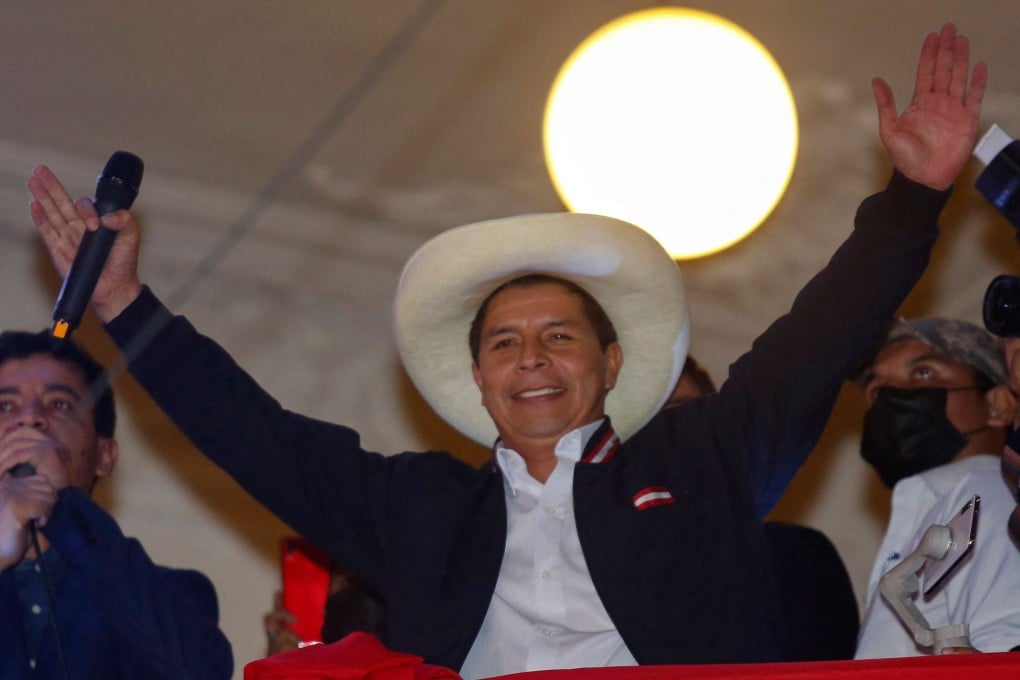Pedro Castillo declared Peru’s president, defeating Keiko Fujimori
- Peru’s electoral authority names Pedro Castillo as next president after June 6 run-off
- Peruvians voted for fifth president in three years after a series of crises and scandals

Pedro Castillo, a schoolteacher from a Marxist party, was proclaimed Peru’s president-elect on Monday, six weeks after a polarising vote of which the results were delayed by claims of electoral fraud from his right-wing rival, Keiko Fujimori.
The 51-year-old trade unionist’s victory leaves Fujimori facing an imminent corruption trial.
“On behalf of my family I would like to salute the electoral authorities … and also to salute the political parties that have taken part in this democratic celebration,” Castillo told supporters gathered at the headquarters of his Peru Libre (Free Peru) party in Lima.
“Dear compatriots, I bring here an open heart for each and every one of you,” he declared from the balcony after Jorge Luis Salas, head of the JNE elections jury, announced his victory in a brief virtual ceremony.
In a gesture to Fujimori, 46, the president-elect urged her to help “take the country forward” and said he held “no resentment” despite the many attacks he had fielded in recent weeks.
A crowd of hundreds that had spent weeks outside the JNE headquarters to support Castillo broke out in celebration at the news.